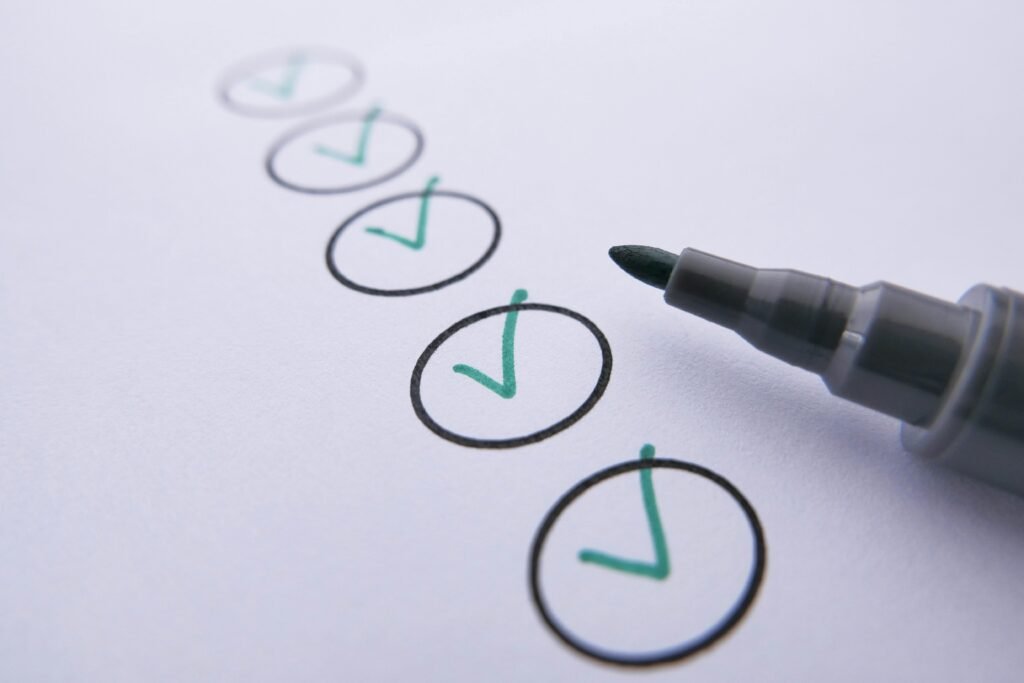
Grasping the Concepts of Self-Confidence and Self-Esteem
Understanding self-confidence and self-esteem is foundational to personal growth.
Self-confidence refers to your belief in your abilities to handle specific tasks or challenges.
It’s the feeling you get when you trust yourself to perform well in various situations, whether it’s at work, in social settings, or tackling a new project.
When you feel self-confident, you’re more likely to take risks, try new things, and bounce back from setbacks.
Self-esteem, however, dives deeper.
It encompasses how you perceive your overall worth as a person.
It’s about valuing yourself irrespective of your achievements or what others think of you.
High self-esteem means you appreciate yourself and believe you deserve respect and kindness.
It’s a more stable and enduring sense of self compared to self-confidence, which can fluctuate based on circumstances.
These two concepts are closely linked.
Enhancing your self-confidence often improves your self-esteem and vice versa.
For instance, when you successfully complete a task that you doubted you could do, your self-confidence gets a boost, which in turn can elevate your overall sense of self-worth.
It’s also worth noting that self-confidence and self-esteem can be situation-specific.
You might feel very confident and have high self-esteem in professional settings but struggle with self-doubt in personal relationships.
Or, you might be comfortable speaking to a large audience but feel insecure about your artistic talents.
Recognizing this variability can help you target areas for growth more effectively.
Understanding these distinctions helps you approach self-improvement more strategically.
When you recognize that self-confidence is more about belief in your abilities and self-esteem is about valuing who you are, you can tailor your efforts to bolster each area appropriately.
This nuanced understanding makes your personal growth journey more focused and effective.
Remember, improving self-confidence and self-esteem is a continuous process.
By understanding these concepts deeply, you can better navigate the steps needed to foster both, making strides in personal growth and self-improvement.
Recognize Your Personal Strengths

Recognizing your personal strengths is a key step in building self-confidence.
Start by taking some time to reflect on your past achievements and experiences.
Consider the moments when you felt proud or accomplished.
These instances, no matter how small they might seem, are evidence of your capabilities and potential.
Make a list of these achievements to serve as a tangible reminder of what you can do.
In addition to self-reflection, feedback from others can be incredibly valuable. Ask friends, family members, or colleagues to share what they perceive as your strengths.
Often, others can see qualities and skills in us that we might overlook.
This external perspective can highlight hidden talents and offer validation that boosts your self-esteem.
It’s also helpful to recognize the everyday strengths you exhibit.
Maybe you’re great at listening to others, solving problems, or staying organized.
These attributes might come naturally to you, making them easy to underestimate, but they are significant indicators of your abilities.
Another effective method is to engage in activities that allow you to use and develop your strengths.
If you’re good at writing, for example, start a blog or volunteer to write articles for a community newsletter.
Doing what you excel at not only reinforces your skills but also provides a confidence boost from knowing you’re contributing value.
Consider using strength assessments or personality tests to gain further insight.
Tools like the VIA Character Strengths Survey or CliftonStrengths can help you identify your core strengths systematically.
These assessments can provide a structured understanding of your abilities, giving you concrete areas to focus on and develop.
Remember to celebrate your strengths without comparing them to others.
Everyone has a unique set of abilities, and comparing yourself to others can undermine your self-worth. Focus on what makes you unique and valuable.
By taking these steps, you’ll start to see a clearer picture of your strengths, paving the way for enhanced self-confidence and self-esteem.
Establish Attainable Goals

Setting goals is essential, but they need to be realistic.
Start by outlining small, achievable steps that lead to larger objectives.
For example, if you want to improve your public speaking skills, begin by speaking up in small group settings before moving on to larger audiences.
When setting your goals, make sure they are specific and measurable.
Instead of saying, “I want to be healthier,” try, “I will walk for 30 minutes every day.”
This way, you can clearly track your progress and stay motivated.
It’s also helpful to break down big goals into smaller tasks.
This makes them less overwhelming and more manageable.
For instance, if your aim is to write a book, start with setting a daily word count goal.
Over time, these small efforts will add up to significant progress.
Another important aspect is to be flexible and adaptable.
Sometimes, unforeseen challenges may arise, and it’s okay to adjust your goals accordingly.
Being adaptable ensures that you stay on track without feeling discouraged by setbacks.
As you reach each milestone, take the time to celebrate.
This acknowledgment is crucial because it builds confidence and reinforces the belief that you can achieve your goals.
Remember, success is a series of small victories.
Involve others in your goal-setting process.
Sharing your goals with friends or family can provide additional motivation and accountability.
They can offer support, encouragement, and even constructive feedback, helping you stay focused and committed.
Regularly review and reassess your goals to ensure they are still aligned with your values and priorities.
Life circumstances can change, and your goals should evolve to reflect those changes.
Periodic reviews keep your goals relevant and meaningful.
Visualize your success. Take a moment each day to imagine yourself achieving your goals.
Visualization can boost your motivation and keep you excited about the process.
Picture the positive outcomes and how they will impact your life.
Finally, don’t forget to be patient with yourself.
Progress might be slow, but persistence is key.
Stay committed to your goals, and over time, you’ll see significant improvements in your self-confidence and self-esteem.
Engage in Positive Self-Talk

Positive self-talk can have a transformative effect on your self-esteem.
It starts with recognizing the negative thoughts that often creep into your mind and consciously replacing them with encouraging words.
For example, if you catch yourself thinking, “I’m not good enough,” reframe it to, “I am learning and growing every day.”
The impact of positive self-talk on performance is well-documented.
Engaging in encouraging self-talk can boost your performance by up to 11%.
Imagine telling yourself before a big presentation, “I am prepared and capable of delivering this well.”
Such affirmations can calm your nerves and reinforce your abilities.
Practical steps to incorporate positive self-talk include using reminders and notes around your living or work spaces.
Sticky notes with affirmations like “You can do it!” or “Believe in yourself” can serve as constant boosts to your mindset.
Even simple reminders on your phone or computer can be effective.
Start a habit of journaling positive affirmations daily.
Write down at least three positive statements about yourself each morning.
These could range from “I am creative” to “I handle challenges well.”
This practice helps you begin your day with a constructive and positive outlook.
Another effective technique is to speak to yourself as you would to a close friend.
Would you tell a friend, “You’re terrible at this”? Likely not.
You’d probably say, “You’re doing great, and you’ll get even better with practice.”
Treating yourself with the same kindness can make a significant difference in your self-esteem.
Remember that practice makes perfect.
At first, positive self-talk may feel awkward or forced, especially if you’re used to being self-critical.
However, the more you practice, the more natural it will become.
Over time, this will foster a more positive self-image and a stronger sense of self-worth.
Lastly, try to visualize your affirmations.
If you tell yourself, “I am confident,” take a moment to picture yourself acting confidently in various scenarios.
Visualization adds an extra layer of belief, making your affirmations more powerful.
Surround Yourself with Encouraging People

The people around you have a huge impact on your self-esteem and self-confidence.
Spending time with those who uplift and motivate you can make a world of difference.
Their positive energy and affirmations can provide a strong foundation of support, helping you feel more secure and valued.
Seek out friends and family members who believe in you and your abilities.
These individuals can offer genuine praise, constructive feedback, and a listening ear when you need it most.
Their encouragement can help you see your strengths more clearly and reinforce your belief in your capabilities.
In addition to personal relationships, consider joining groups or communities that align with your interests and goals.
Whether it’s a hobby group, a professional organization, or an online community, being part of a supportive network can offer both camaraderie and validation.
Engaging with like-minded people can boost your confidence as you share experiences and accomplishments.
Mentorship is another powerful way to surround yourself with encouragement.
Find a mentor who can guide you through your personal growth journey.
A mentor can provide valuable insights, share their own experiences, and help you navigate challenges with confidence.
Their wisdom and guidance can be incredibly motivating and reassuring.
Don’t forget the power of professional support.
Sometimes, working with a coach or therapist can offer specialized strategies and personalized encouragement tailored to your needs.
These professionals can help you identify and overcome self-doubt, setting you on a path toward greater self-confidence and self-esteem.
It’s also important to minimize exposure to negative influences.
If certain relationships consistently bring you down or make you doubt yourself, it might be time to set boundaries.
Prioritizing your mental and emotional well-being sometimes means limiting contact with people who drain your energy or undermine your confidence.
Lastly, be open to forming new connections.
Attend events, participate in activities, and engage in social opportunities that introduce you to positive, encouraging individuals.
Building a supportive network takes time, but the benefits to your self-esteem and self-confidence are well worth the effort.
Acquire New Skills

Engaging in learning new skills is a fantastic way to boost self-confidence and self-esteem.
When you challenge yourself to learn something new, you prove to yourself that you can adapt, grow, and overcome obstacles.
Start by identifying skills that interest you or that you’ve always wanted to develop.
Perhaps you’ve always wanted to learn how to cook gourmet meals, play the guitar, or become proficient in a new software program.
Whatever your interests, choose something that excites you and sparks your curiosity.
Enroll in a class or join a workshop.
These structured environments provide not only the resources and guidance you need but also a community of learners who share similar goals.
This sense of community can be incredibly motivating and supportive, making the learning process more enjoyable and less intimidating.
Set specific, attainable goals for your new skill.
For example, if you’re learning a new language, set a goal to practice for 20 minutes a day.
Break down larger objectives into smaller, manageable tasks to avoid feeling overwhelmed and to track your progress easily.
Don’t be afraid to make mistakes.
Learning is a process, and mistakes are an essential part of that journey.
Embrace them as opportunities to improve and grow.
Each time you overcome a challenge or master a new aspect of the skill, your confidence will increase.
Practice consistently. Dedicate regular time to work on your new skill.
Consistency helps reinforce learning and leads to steady progress.
Celebrate small milestones along the way to keep your motivation high.
Utilize online resources and tutorials. The internet is a treasure trove of information, offering countless free and paid courses, videos, and articles on almost any skill you can think of.
Take advantage of these resources to supplement your learning.
Remember to stay patient with yourself.
Developing a new skill takes time and effort, but the rewards are well worth it.
Each new ability you gain is a testament to your resilience and capacity for growth, reinforcing your self-esteem and self-confidence.
Prioritize Physical Health

Taking care of your physical health can significantly enhance your self-confidence and self-esteem.
When you prioritize activities that boost your physical well-being, you’re not just improving your body; you’re also nurturing your mind.
Exercise is a powerful tool in this regard.
Engaging in regular physical activity can release endorphins, the body’s natural mood lifters, which can reduce stress and promote a positive outlook.
Whether it’s a morning jog, yoga session, or a dance class, find an activity you enjoy and make it a consistent part of your routine.
The sense of accomplishment from meeting fitness goals can also give your confidence a substantial boost.
Eating a balanced diet is another key aspect of maintaining physical health.
Nourishing your body with wholesome foods can help you feel more energetic and focused.
Aim to include a variety of fruits, vegetables, lean proteins, and whole grains in your meals. Hydration is equally important; drinking enough water throughout the day can enhance both your physical and mental performance.
Sleep is often overlooked but is crucial for your overall well-being. Quality sleep helps your body recover, supports cognitive function, and can improve your mood.
Try to establish a regular sleep schedule and create a relaxing bedtime routine to ensure you get the rest you need.
Physical health isn’t just about diet, exercise, and sleep, though.
It’s also about paying attention to how you feel and taking time for self-care.
This can include anything from regular medical check-ups to mindfulness practices like meditation or deep breathing exercises.
By taking these steps, you’ll find that improving your physical health can have a profound impact on your mental and emotional state, fostering a stronger sense of self-worth and confidence.
Reflect on Your Progress

Taking time to reflect on your progress is essential for maintaining and boosting your self-confidence and self-esteem.
One effective way to do this is by keeping a journal where you document your thoughts, feelings, and achievements.
This practice allows you to track your journey and provides a tangible record of your growth.
Set aside a few minutes each day or week to write about what you’ve accomplished, how you felt about those achievements, and any challenges you overcame.
This reflection helps you see the positive changes you’ve made and reinforces your sense of self-worth.
When you encounter setbacks, reviewing these entries can remind you of your resilience and capability.
Another beneficial approach is to regularly review your goals and milestones.
Celebrate even the small victories, as these are the building blocks of larger successes.
Acknowledging your progress, no matter how minor it may seem, can provide a significant confidence boost and keep you motivated to pursue your larger objectives.
You can also use this time to reassess your goals and make any necessary adjustments.
Personal growth is a dynamic process, and your aspirations might evolve over time.
Periodically evaluating your goals ensures they remain relevant and aligned with your current values and priorities.
Consider sharing your reflections with a trusted friend, mentor, or support group.
Their feedback and encouragement can provide additional insights and motivation.
Discussing your journey with others can also offer different perspectives that you might not have considered, enriching your self-improvement process.
Lastly, practice self-compassion during your reflection.
Acknowledge that growth takes time and that it’s okay to have setbacks.
By treating yourself with kindness and recognizing your efforts, you’ll foster a healthier, more positive self-image.
